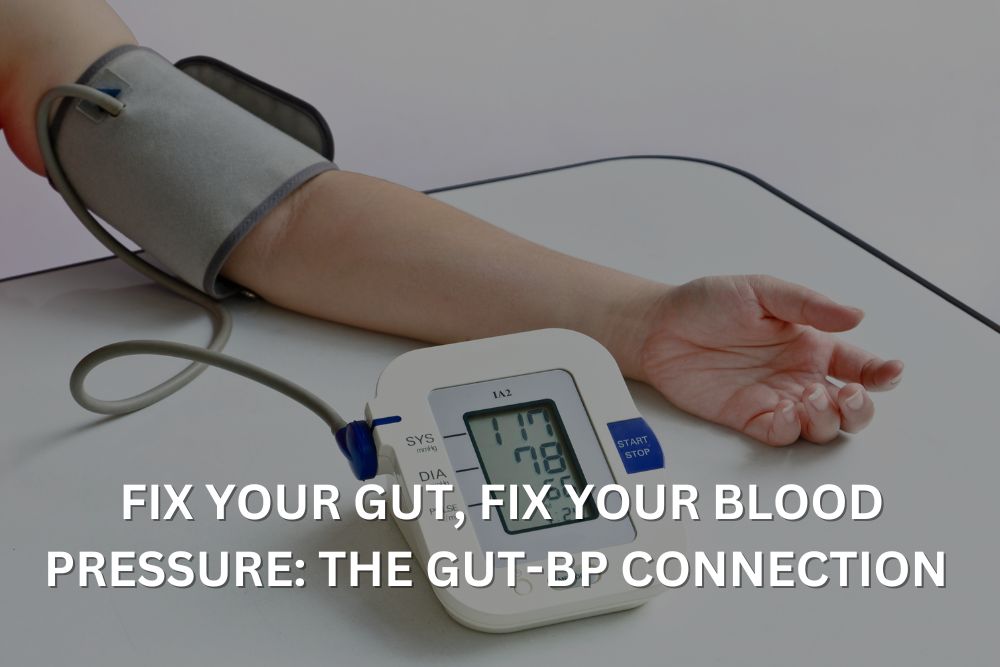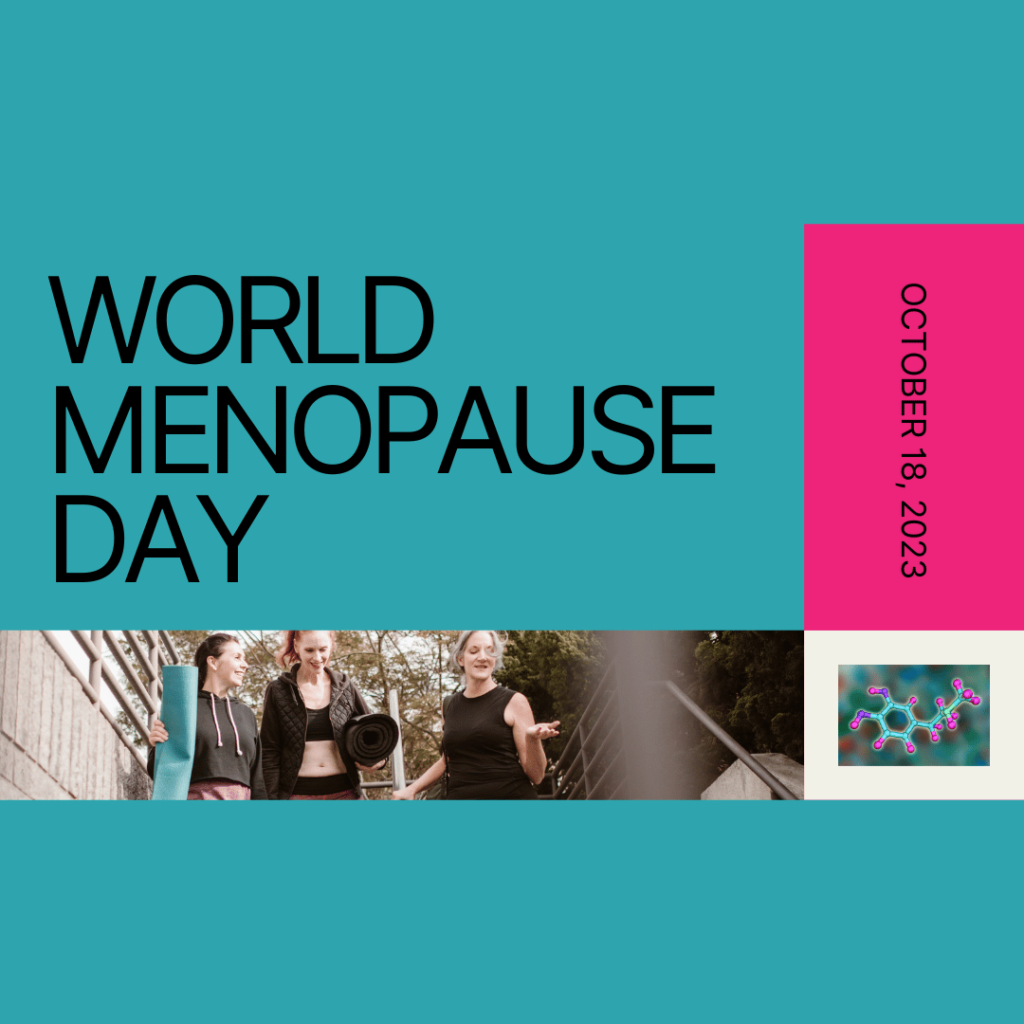How to Improve Gut Health in the UK

Understanding Gut Health Gut health is a very common concern that Gillian Killiner, our 121 gut specialist award winning Dietitian is asked to assess by Drs, Consultants, AHPs and patients who self-refer. She treats many every day, whether it be through online consultations or face-to-face in her clinic. If you’re not familiar with the concept of gut health, don’t worry! It’s a broad topic that encompasses various aspects related to different parts of the body, in addition to the gut itself and in the next few blogs we hope to cover these areas in more detail so you can get a better understanding. Gut Bacteria The gut microbiota, also known as gastrointestinal bacteria, is a diverse community of microorganisms that reside primarily in a part of the large bowel known as the colon, which is part of the digestive tract. This community includes bacteria, viruses, fungi, and other single-celled organisms. The gut microbiota plays a crucial role in various aspects of human health, and its composition can vary among individuals. A healthy gut not only strengthens our immune system but also supports the well-being of essential organs like the heart and brain. Moreover, it positively influences mood, fostering happiness and satisfaction. We know that when the gut is not balanced health is compromised at many levels. How are we able to assess our gut bacteria? Research into gut bacteria has been conducted since the invention of the microscope around 1665. Over the past 30 years, there has been a significant leap in this field, thanks to the sequencing of small molecules of life, including DNA and eventually RNA. What is Gut Health? The term “Gut health” is the umbrella term for various health conditions including : GERD Irritable bowel syndrome Hemorrhoids Coeliac disease Gallstones Constipation Diverticulitis Gastritis Ulcers Colorectal cancer Diarrhoea Gastrointestinal infections Liver disease Pancreatitis Esophageal cancer Gastroparesis Years of research and work in practice link these conditions to our gut bacteria whether as a direct cause, preventative or used as a treatment. In addition extensive research has also been linking the vital organs like brain, heart, liver, skin to our gut bacteria and how imbalances in the gut microbiota can lead to increased intestinal permeability or “leaky gut,” allowing harmful substances to enter the systemic circulation and burdening liver function. We know the health of our skin is closely linked to our gut health due to their shared immune system involvement. Research indicates that disruptions in the balance of intestinal flora may contribute to skin conditions like acne, eczema, psoriasis, rosacea, and dermatitis. The gut-brain axis is a bidirectional communication system between the brain and the GI tract. Treating the gut can directly assist mental health and well-being. Our Gut Health Programme is adapted to suit all gut health issues and more. Excellent Gut Health Ensuring excellent gut health at every age is crucial for overall wellness. An effective digestive system also promotes efficient nutrient digestion and absorption, which subsequently enhances sleep quality. Hence, giving priority to gut health is highly recommended. × Dismiss this alert. Dietitian’s Role in Managing Digestive Disorders A dietitian plays a crucial role in managing digestive disorders by providing tailored nutritional guidance to alleviate symptoms, promote digestive health, and improve overall well-being. Our 121 Gut Health Programme has helped thousands of people not only regain control of their bowel symptoms and health but also improve their sleep, mental clarity, weight and other health issues. How does 121 Dietitian work to improve Gut Health? At 121 Dietitian we work closely with other healthcare professionals to aid in the diagnosis and treatment of digestive disorders. We perform detailed individual assessments take a deep dive into the detail in our 60-minute consultation before writing up a detailed bespoke plan, supplement and lifestyle protocol. Before attending an appointment, our patients are required to log in to our online Portal to complete our background questionnaire and Food and Symptoms Diary. This part of the programme is completely free of charge and allows one of our specialist dietitians to direct you to select the correct programme. The programme includes a 30-minute review to ensure the programme has been successful and provide further nutritional advice and guidance as part of the programme requirements. Mairead AdamsGoogle Review Read More After having COVID at the end of 2022 I suddenly developed allergies to Milk products and intolerances to other foods. My Gastroenterologist recommended I see Gillian, who put me on her low Fodmap Programme at the end of September and I am now at the Reintroduction Stage. Since commencing the Programme, my bowel movements and general health have improved dramatically. I sleep better and a number of my aches and pains have gone. After having diarrhoea for 9 months, effectively, I can now go out and about without that worry of knowing if I will be close to a toilet and if I will be able to get there on time, to constantly carrying Immodium, just in case. The peace of mind this has given me is enormous, never mind that I now feel more like a ‘normal’ person. I still have to watch what I eat, especially in relation to my milk allergy, which may take a bit longer to ‘fix’, if it can be fixed. However, the change in me is amazing and I am extremely grateful to Gillian for her time, advice and patience in getting me to this point. Thank you Gillian. How a Specialist Dietitian can fix your Gut… Specialist gastrointestinal Dietitian Gillian Killiner brings her 26 years of dietetic experience to help each patient she sees. Her deep dive is extensive – here are just some of the areas covered…. Fibre Management We guide patients on appropriate fibre intake, considering the type and amount of fibre that can aid in digestion without causing discomfort. Food Allergies and Intolerances We identify and address food allergies or intolerances that may contribute to digestive issues.Recommend suitable alternatives to replace problematic foods. Hydration We emphasise the importance of adequate
Diet and Eyesight :The Vital Connection

Today, I am going to explore a topic that’s often overlooked: the relationship between Diet & Eyesight. It is so important and I can’t believe I haven’t talked about it before! Your eyes are a windows to your overall health and can really impact your quality of life if you find yourself with an eye related health problem. Welcome if you are new here to 121 Dietitian. I’m Gillian Killiner, founder of 121 Dietitian, and I have been writing blogs for many years on various topics alongside my clinical work. So hopefully you will find some information relevant or interesting to you. Understanding the Basics – Diet & Eyesight So what does the eye do? The human eye is a complex organ. It works like a camera by capturing and processing light, which is then transformed into visual information that our brain can understand. Its well-being relies on a variety of nutrients to function optimally. These nutrients can be obtained through a balanced diet, and they play a crucial role in maintaining good eyesight throughout your life. So lets look first at foods that could impact negatively on your eye health: 1. Sugary Drinks Sugary fizzy drinks, energy drinks, sweet tea, and lemonade, high fructose syrups. These beverages are often loaded with sugar, and excessive sugar consumption can increase your risk of developing type 2 diabetes and heart disease. These conditions, in turn, can lead to eye problems like diabetic retinopathy and age-related macular degeneration (AMD). Just to put things in perspective, a single soft drink can contain a whopping 37 grams of sugar! So, it’s wise to be mindful of how many sodas you consume daily. 2. Fish & Shellfish Fish and shellfish are generally considered healthy sources of protein and essential nutrients. However, they do contain small amounts of mercury. While this isn’t a major concern for most people, certain groups are more susceptible to health problems related to mercury exposure. This includes pregnant women, nursing mothers, and children. For these individuals, it’s recommended to limit fish intake to 2 portions per week to reduce the risk of eye damage. 3. Bread Products Bread products, such as white bread and pasta, are daily dietary staples for many of us. However, they contain simple carbohydrates that are digested quickly, leading to rapid spikes in blood sugar levels. This can contribute to chronic inflammation, a condition linked to AMD. If you’re worried about the impact of bread products on your eye health, consider limiting your consumption and exploring whole-grain alternatives. 4. Prepackaged Foods Prepackaged foods are convenient but often not healthy and frequently contain high levels of sodium, which can lead to high blood pressure. Elevated blood pressure, can damage your retina and result in a condition known as hypertensive retinopathy. To reduce your sodium intake, look for “low sodium” labels on canned goods, soups, and sauces when food shopping, but more importantly rethink the amount you use of these products and consider how you can cook with natural ingredients when possible. 5. Processed Meat Processed meats like bacon, deli meats, sausages are loved by many but can be high in sodium as well. Beyond contributing to hypertensive retinopathy, excessive sodium intake can cause choroidopathy, characterized by fluid buildup under the retina, and neuropathy, which can lead to blockages in blood flow. So the message here is to watch your salt and sugar intake as this can go a long way in preserving your eye health. So what can you eat instead? Thankfully there is an abundant variety of foods and fluids that can assist and nourish the eyes. Key Nutrients for Healthy Eyes Preventing Age-Related Eye Conditions: Consuming a diet rich in antioxidants, such as vitamins C and E, can help protect your eyes from the oxidative stress associated with aging and reduce the risk of cataracts and AMD. Maintaining Eye Moisture: Omega-3 fatty acids help keep your eyes moist and reduce the risk of dry eye syndrome, which can be uncomfortable and affect your vision. Enhancing Night Vision: Adequate intake of vitamin A ensures your eyes can adapt to low-light conditions, which is crucial for night vision. Shielding Against Harmful Light: Lutein, zeaxanthin, and beta-carotene act as natural filters, protecting your eyes from harmful ultraviolet (UV) and blue light. Promoting Eye Tissue Health: Nutrients like zinc support the health of eye tissues and may reduce the risk of conditions like macular degeneration. Conclusion – Diet & Eyesight Our eyes are invaluable, and protecting our vision should be an integral part of our daily life. A diet rich in the right nutrients can play a pivotal role in maintaining and safeguarding eyesight. By incorporating foods rich in vitamins A, C, E, omega-3 fatty acids, zinc, and carotenoids into your daily meals, you are investing in the long-term health of your eyes. At 121 Dietitian, we understand the importance of nutrition in promoting overall well-being, including eye health. If you’d like personalized guidance on optimizing your diet for better eyesight or any other nutritional concerns, don’t hesitate to reach out. Remember, a nutritious diet isn’t just about looking good; it’s about seeing the world around you safely for years to come. If you want to book your programme TODAY we would love to help you. You can book a 121 Dietitian Programme today by clicking on the link below CONTACT TODAY Vitamin A: This is perhaps the most well-known nutrient for eye health. Vitamin A helps maintain the health of your cornea, the outermost layer of your eye. A deficiency in vitamin A can lead to night blindness and other vision problems. Vitamin A is found as retinol in meats, dairy, eggs and Beta-carotene in fruits and vegetables. Vitamin C: Found in fruits and vegetables like oranges, strawberries, and bell peppers, vitamin C supports the blood vessels in your eyes and can help prevent cataracts and age-related macular degeneration (AMD). Vitamin E: Nuts, seeds, and leafy greens are rich sources of vitamin E, which is known for its antioxidant properties. Antioxidants
Bulk Brown Rice Protein Powder, Vegan Protein Shake, Unflavoured, 1 kg

Premium, high quality Brown Rice Protein from a leading sports nutrition brand
A high quality source of protein for vegans and vegetarians.
Highly soluable for easy mixing
Fix Your Gut, Fix Your Blood Pressure: The Gut-BP Connection

Fix Your Gut, Fix Your Blood Pressure: The Gut-BP Connection Did you know that your gut health can directly impact your blood pressure? High blood pressure (hypertension) affects millions worldwide, and while diet and lifestyle are well-known contributors, the role of gut health is often overlooked. At 121 Dietitian, we believe in empowering you to take control of your health from the inside out. Our self-directed Gut Health Online Course offers everything you need to repair your gut, improve your blood pressure, and boost your overall health. The Gut-Blood Pressure Connection Your gut is home to trillions of bacteria, collectively known as the gut microbiome. These tiny organisms do much more than aid digestion—they influence key processes that regulate blood pressure. Here’s how: Microbiome Imbalance (Dysbiosis): – A healthy gut microbiome produces short-chain fatty acids (SCFAs), like butyrate, which have anti-inflammatory and blood-pressure-lowering effects. – When the microbiome is unbalanced (dysbiosis), harmful bacteria release toxins that increase inflammation and impair blood vessel function, leading to higher blood pressure. Leaky Gut Syndrome: – Poor gut health can lead to a “leaky gut,” where harmful substances enter the bloodstream. This triggers chronic inflammation, a key driver of hypertension. Metabolic Dysfunction: – An unhealthy gut contributes to insulin resistance, obesity, and poor fat metabolism—all risk factors for high blood pressure. Gut-Brain Axis: – The gut communicates with the brain through the vagus nerve. A disrupted gut can impair this connection, affecting stress responses and blood pressure regulation. Fix Your Gut to Lower Blood Pressure Repairing your gut can significantly improve your blood pressure and overall health. OMRON X3 Comfort Automatic Upper Arm Blood Pressure Monitor for Home Use, Clinically Validated Blood Pressure Machine Including Use on Diabetics and Pregnancy, Intelli Wrap Cuff for Accurate Results Clinically validated: The OMRON range of blood pressure machines has been validated by respected clinics, based on the latest European Society for Hypertension (ESH) or International Organisation for Standardisation validation protocols. X3 Comfort is also validated for use on diabetics or during pregnancy (pre-eclampsia). Intelli Wrap Cuff: this easy-to-use, pre-formed upper arm cuff, measuring 22-42 cm, takes away the hassle of cuff placement and ensures accurate readings in any position Cuff wrap guide: a major cause of inaccurate blood pressure monitoring is due to incorrect placement, but the Cuff Wrap Guide and body movement detection indicators help you avoid these mistakes BUY TODAY Here’s how our Gut Health Online Self-Directed Course can help: Eat a Gut-Friendly Diet – Learn which foods to eat (and avoid) to restore balance in your microbiome. Our course includes recipes and shopping lists packed with: -Suitable-Fiber Foods: Fruits, vegetables, whole grains, and specific legumes to fuel beneficial bacteria. Incorporate Probiotics – Discover the power of probiotics, to replenish your gut with beneficial strains. Reduce Inflammation – Follow our step-by-step guidance on anti-inflammatory eating. Stress Management – Stress affects your gut and blood pressure. We teach techniques to reset the gut-brain connection for lasting improvements. Hydration and Movement – Staying hydrated and active supports gut lining repair, digestion, and cardiovascular health—all essential for reducing blood pressure. Why Choose Our Gut Health Online Course? At 121 Dietitian, we’ve designed this course to empower you to take control of your gut health with easy-to-follow steps. Whether you struggle with bloating, IBS, other gut issues and have high blood pressure, this program is for you. – Expert Guidance: Created by Gillian Killiner, a specialist Dietitian with decades of experience. – Comprehensive Tools: Includes videos, recipes, shopping lists, and lifestyle advice. – Proven Results: Many clients report reduced blood pressure, better energy, and improved mood after following our program. – Self-Paced Learning: Access the course anytime, anywhere. Fix Your Gut, Fix So Much More Your gut is at the core of your health. By addressing poor gut health, you’re not only lowering your blood pressure—you’re reducing inflammation, boosting immunity, improving energy, and supporting weight management. Don’t let poor gut health hold you back. Enroll in our Gut Health Online Self-Directed Course today and take the first step toward a healthier, happier you. Ready to Fix Your Gut? Take control of your health and transform your life. 👉 Join the Gut Health Online Self-Directed Course Now About the Author: Gillian Killiner, RD, is a leading Dietitian specializing in gut health and personalized nutrition. With over 30 years of experience, she’s helped thousands improve their health through evidence-based dietary interventions. If you are unsure of how to change your eating habits, or need help optimising the foods you eat please do contact us. We would love to help you or your family and friends with any nutrition related queries big or small. In the meantime do please check out our 121Dietitian Shop If you have enjoyed this blog we would love you to share this with your family and friends on your social media channels. Why not visit our YouTube Channel for more on keeping your health optimal. Alcohol In our blog Hangover Cures Put To The Test we have looked at the studies on each one in order to determine which one is actually the best. Here are 2 of our 12 findings… Alka-Seltzer for a hangover One of our least favourites, containing a concoction of aspirin, paracetamol and caffeine. It is believed that Alka-Seltzer before heading to bed will leave you feeling revived and hangover-free in the morning. Research at Leeds Metropolitan University revealed that while they can help a headache and neutralise excess stomach acid, the main benefits are probably from the effect of drinking the water that they are dissolved in. They aren’t recommended for sensitive stomachs. Artichoke extract for a hangover Believed to help the liver process alcohol, there is conflicting findings on the effect of Artichoke extract. The journal Phytomedicine showed that a supplement of 400mg extract of artichoke leaf extract helped stomach problems, and there is anecdotal evidence that it reduces indigestion, an upset stomach and nausea. Experts however at King’s
Unlocking the Secrets of Perimenopause and Beyond with Diet and Nutrition

Discover expert insights from renowned Dietitian Gillian Killiner. Learn how diet and nutrition empower women during perimenopause and beyond. Diet and Nutrition: Your Best Allies in Perimenopause and Beyond It’s crucial to recognize the profound impact that diet and nutrition can have on a woman’s journey through perimenopause and the years that follow. Who better to shed light on this topic than Gillian Killiner, a globally respected dietitian, who at 50 + yrs with an autoimmune disease, stands as a testament to the power of a personalised approach? Why Does Diet Matter During Perimenopause and Menopause? Perimenopause, is the term used for the transitional phase before menopause. This for many women comes with a suckerpunch of challenges such as hormonal fluctuations, weight gain, low mood and increased risk of osteoporosis. Definately honing in on a well-balanced diet can significantly assist these symptoms and promote overall physical and mental well-being, but this is just one of several areas that may need to be revisited and tweaked or indeed overhauled and this is something that we offer as part of our programmes to our patients @ 121 Dietitian. As many ladies find out, no one diet suits all, so we design programmes to ensure they work with each individual with their specific needs. Understanding the Science Behind Perimenopause Challenges Perimenopause is a natural biological process that every woman goes through as she approaches the end of her reproductive years. This phase, typically starting in a woman’s mid-40s, but can be earlier than this. If much earlier than this is different and called premature ovarian failure. Perimenopause is characterized by a series of hormonal fluctuations as the body gradually ceases to produce eggs for fertilization so reproduction stops. These hormonal changes, bring about a host of challenges that need to be accepted and suitably addressed. 1. Hormonal Fluctuations: Estrogen, is one of the primary female sex hormones, and plays a pivotal role in regulating the menstrual cycle and maintaining reproductive health. It is the most talked about and promoted hormone at this stage of life. Interestingly during perimenopause, progesterone declines before oestrogen starts to fluctuate, and this is an extremely important part of the hormonal picture often overlooked. From years of researching and teaching about menopuase and diet Gillian is always astounded at how other hormones including progesterone and testosterone are left out or not considered when checking in with women, blood levels and their symptoms, oestrogen the focus hormone and the following areas selected below highlight this. 2. Weight Gain in Menopause: Weight gain is a common concern during perimenopause and can be attributed to several factors, including hormonal changes, decreased metabolism, and lifestyle shifts. Again in the literatue the focus is on Estrogen, and how it is influences body composition and fat distribution. “As estrogen levels decline, women may experience an increase in abdominal fat. A study published in Obstetrics & Gynecology 2 delved into the hormonal mechanisms affecting body composition during perimenopause, emphasizing the significance of a healthy lifestyle, including diet and exercise, in managing weight gain”. Nothing about how progesterone actually assisting metabolic function, mood, sleep and menopausal weight gain. 3. Increased Risk of Osteoporosis in Menopause: Another Estrogen focus is on bone health and how it is essential for maintaining bone density and strength. “During perimenopause, the reduction in estrogen levels can accelerate bone loss, leading to osteoporosis—a condition characterized by fragile and porous bones. Research studies, such as those published in the Journal of Bone and Mineral Research 3, have extensively investigated the link between estrogen deficiency and osteoporosis, emphasizing the importance of adequate calcium intake, vitamin D supplementation, and weight-bearing exercises to support bone health during and after perimenopause”. No mention of Progesterone when we know Progesterone, can promote the production of osteoblasts which are required to effect new bone formation. Natural progesterone has been shown to stimulate osteoblast-mediated new bone formation which is required to prevent and reverse osteoporosis Here is a video on osteoporosis you might find helpful. Gillian is passionate on getting the correct information to her patients and for the past 15 years been highlighting the need to address more than just oestrogen depletion. In fact she helps 100’s of women each year with hormonal issues including, cortisol, testosterone, insulin resistance, oestrogen dominance and more. Understanding these physiological changes at a scientific level underscores the critical need for proactive measures to support women’s health during perimenopause, menopause and after. This blog has only scratched the surface. A balanced lifestyle and a diet rich in essential nutrients, along with regular physical activity, not only alleviates these challenges but also ensures women can embrace this natural life transition with confidence and vitality. By leveraging the insights provided by scientific research, women can make informed choices about their diet and lifestyle, ensuring a smoother journey through perimenopause and beyond. Something that our mothers and grandmothers didn’t have the luxury of. Gillian Killiner’s Top Expert Tips: FAQs About Diet and Perimenopause: Q1: Can diet really impact menopausal symptoms? A1: Absolutely! A balanced diet can help manage weight, reduce hot flashes, and support emotional well-being during this phase. Q2: Are there specific foods to avoid during perimenopause? A2: Limit caffeine, alcohol, and super spicy foods as they can trigger hot flashes and disturb sleep, subtle spices can be antinflammatory. Q3: Is exercise important alongside a balanced diet? A3: Yes, regular exercise complements a healthy diet, enhancing overall fitness, builds muscle, bone health, reduces fat and enhances mood stability. The Importance of Nutrition Beyond Menopause: With aging, the body’s nutritional requirements evolve however we should allow Menopause to mark the beginning of a new chapter. It can be scary for all women. Gillian Killiner -” for me in my 50’s with no functioning thyroid and a very busy and hectic life, I am seeing the start of physical changes that I will monitor and maybe update you on! So far I have not changed in clothes size from size 8 since I was age 18 so for
Constipation Relief

5 Evidence-Based Constipation Home Remedies by a Registered Dietitian Constipation is a common issue that affects one in five people following a Western diet. If you have ever suffered with this you will know how unpleasant the feeling is. Maybe you are currently suffering with ongoing constipation and are in need of some guidance, so please read on. I’m Gillian Killiner, a registered dietitian with 26 years of experience in helping thousands of individuals with their dietary and health needs. In this blog post, I share five evidence-based tips to assist with constipation. But first, let’s define constipation. What is Constipation? Constipation occurs when you haven’t had a bowel movement for more than three times in a week. You can assess your bowel movements by using a stool chart to evaluate consistency and type. Typically, constipated stools are hard, small lumps, or pebble-like Type 1 and 2. What is a normal bowel movement frequency as defined by the NHS? “It is normal to pass a stool everyday up to every 3 days; stools should be soft and easy to pass. You should not need to strain to pass a stool. Some people pass a stool once a day and some twice these are both normal.” So what factors in a Western diet contribute to constipation? Dietary Factors 1. Hydration for Constipation is Key One of the first and most crucial tips for relieving constipation is to stay adequately hydrated. Many people underestimate the importance of drinking enough fluids. It’s easy to forget to drink when we switch off our thirst receptors. To combat this, keep a drink, such as a glass or bottle of water, with you throughout the day. Aim for 1.5 litres minimum. You can also include herbal teas and coffee, but limit them to no more than four cups a day, and avoid making them overly strong. Excessive caffeine can contribute to dehydration, which worsens constipation. 2. Load Up on Fruits and Vegetables Consuming an ample amount of fruits and vegetables is another essential strategy for relieving constipation. Begin your day with a breakfast rich in vegetables or add fruits to your cereal. Incorporate fruits and vegetables into your meals and snacks as much as possible. Variety and color in your diet are key. These foods provide essential antioxidants, vitamins, minerals, and fibre, all of which promote healthy bowel movements. Don’t forget to consider the fibre content in your diet, which can come from sources like nuts, seeds, beans, pulses, and high-fiber grains. Aim for an average of 30 grams of fiber daily to keep your bowels moving smoothly. 3. Dried Fruits as a Natural Solution Dried fruits like prunes, dates, and raisins can also be valuable additions to your diet when dealing with constipation. They are rich in fiber and natural sugars, which can help stimulate bowel movements. Including these dried fruits in your diet can be a tasty and effective way to alleviate constipation, just keep to small portions. Lifestyle Factors 4. Embrace Exercise for Constipation Exercise plays a vital role in maintaining regular bowel movements. It helps reduce transit time, meaning food moves through your digestive system more quickly. This faster gut transit leads to improved bowel regularity. Additionally, exercise promotes the growth of beneficial gut bacteria, strengthening abdominal muscles, and overall gastrointestinal health. Aim for regular physical activity to reap these benefits. 5. Listen to Your Body Lastly, don’t ignore your body’s signals when it’s time to go to the toilet. Often, the morning after breakfast is the most opportune time to have a bowel movement. However, due to our busy lives and schedules, we sometimes ignore these cues. It’s essential not to hold onto stool if you feel the urge to go. Ignoring these signals can have negative long-term consequences. If you find yourself straining during bowel movements, consider changing your sitting position on the toilet. Squatting, for example, can create a more natural alignment for easier passage of stool. Constipation Conclusion Constipation is a common issue, but it can be effectively managed with evidence-based strategies. These five tips, including staying hydrated, consuming ample fruits and vegetables, incorporating dried fruits, embracing exercise, and listening to your body, can make a significant difference in your digestive health. Remember that there are numerous dietary, lifestyle, and supplement options available to alleviate constipation. The tips mentioned here provide a solid starting point. There are many more additional strategies out there so do get in touch if you are struggling. Often we see patients with alternating constipation and diarrhoea, which is so hard to live with. Not being able to predict how your day will go and fearful of your bowels not working smoothly can really impact on your quality of life. Our GUT Health programme is the best programme which can fix you in 6 weeks or less. Do check out my other blogs and my videos on my YouTube channel covering various aspects of diet and health, so don’t forget to like, subscribe, and share my content. Until next time, take care! If you want to book your programme TODAY we would love to help you. You can book a 121 Dietitian Programme today by clicking on the link below If you have enjoyed this blog we would love you to share this with your family and friends on your social media channels. Do visit our YouTube Channel for more on keeping your health optimal. If you are interested in how I overcame my Thyroid Autoimmune Condition do check out the About section below Before you go please check out our 121 Dietitian Shop created specifically for optimising your health. Gillian x